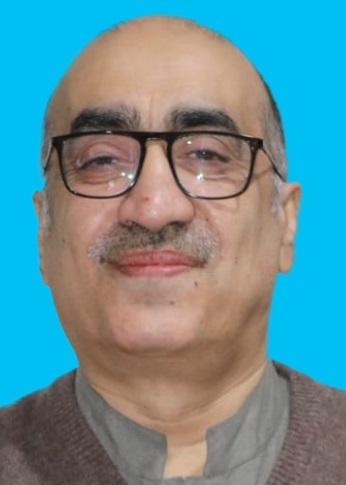Prof Dr Liaqat Ali
In chapter 2, verse 183, the Holy Quran says, “O you who believe, fasting is prescribed for you as it was prescribed for those who were before you, in order that you may learn piety and God Consciousness.” Fasting is the best remedy for human beings to control Nafs. The reward is also amazing and promised by Almighty Allah.
As the month of Ramadan is coming, so many patients as well as the general population would have queries about fluid intake management in Ramadan. In general public, those who are healthy with no chronic disease, ailment or kidney problems are advised to take plenty of fluids in Sehri and Iftar preferably plain water. They should avoid energy drinks as they have no established beneficial role in kidneys rather they possess harm to the renal system. Apart from this, there are some people who need special concern regarding water and fluid intake.
Stone disease in kidneys is very prevalent in our country that’s why all such patients should take fluids so as they can produce 2 to 2.5 liters of urine in 24 hours. To make it easier, they should keep their urine diluted clear in color not concentrated yellowish. They may take tea, green tea, and juices etc. during Sehri and Iftar but 50 percent of the fluid should be plain water. The patients with history of kidney stones should avoid added salts, and restrict dairy products, mutton and beef. They can enjoy chicken and fish and can fast and seek the blessings of Almighty Allah in the holy month of Ramadan.
All the patients who have congenital absent one kidney, surgically removed one kidney or non-functioning one kidney should not fast. Almighty Allah being Rahman and Raheem has given them an alternate of Kifara instead of fasting. It is utmost important in faith that our body parts belong to Allah and any harm intentionally or unintentionally is unforgiveable in religion. As dehydration can harm the existing single kidney, so medically speaking that such persons should not fast and they are allowed to take plenty of fluids in isolation, and can actively participate in prayers, Aitekaf, and recitation of the Holy Quran. For them, all other restrictions of fasting like not doing wrongs are binding on them except that they are allowed to take fluids.
Similarly, all the patients with renal failure, post renal transplantation or patients suffering from any disease that requires oral or injectable medications every 6 or 8 hourly are exempted from fasting. Their fluid intake should be according to the advice of their attending nephrologist.
As the month of Ramdan is a blessing for diabetic patients, it has a positive effect on controlling their blood sugar, however, they should take plenty of plain water in Sehri and Iftar to keep their kidneys well hydrated.
Moreover, senior citizens with prostate problem can fast and have the blessings of Ramadan. This set of population is unique as they should avoid excessive fluid intake during Iftar, because, it would hamper their sleep as well as can feel difficulty in concentration in night prayers due to urgency of urination. Their fluid intake should be need-based in Sehri and Iftar and should avoid more diuretic fluids like sweet juices and energy drinks etc.
The writer is working at the Department of Urology, Institute of Kidney Disease (IKD), Hayatabad Medical Complex (MTI-HMC), Peshawar. He has been managing all the complex renal stones since 2007. His involvement in patient care, surgical treatment, community awareness campaign, and innovative research in the field of urology has gotten national and international acclaim. The Department of Urology, IKD in liaison with NUST Islamabad, has also started innovative research on Nanotechnology and the study of elementome in renal stone diseases under his leadership. He can be reached at: liaqat_99@yahoo.com.
Related Posts






Comments